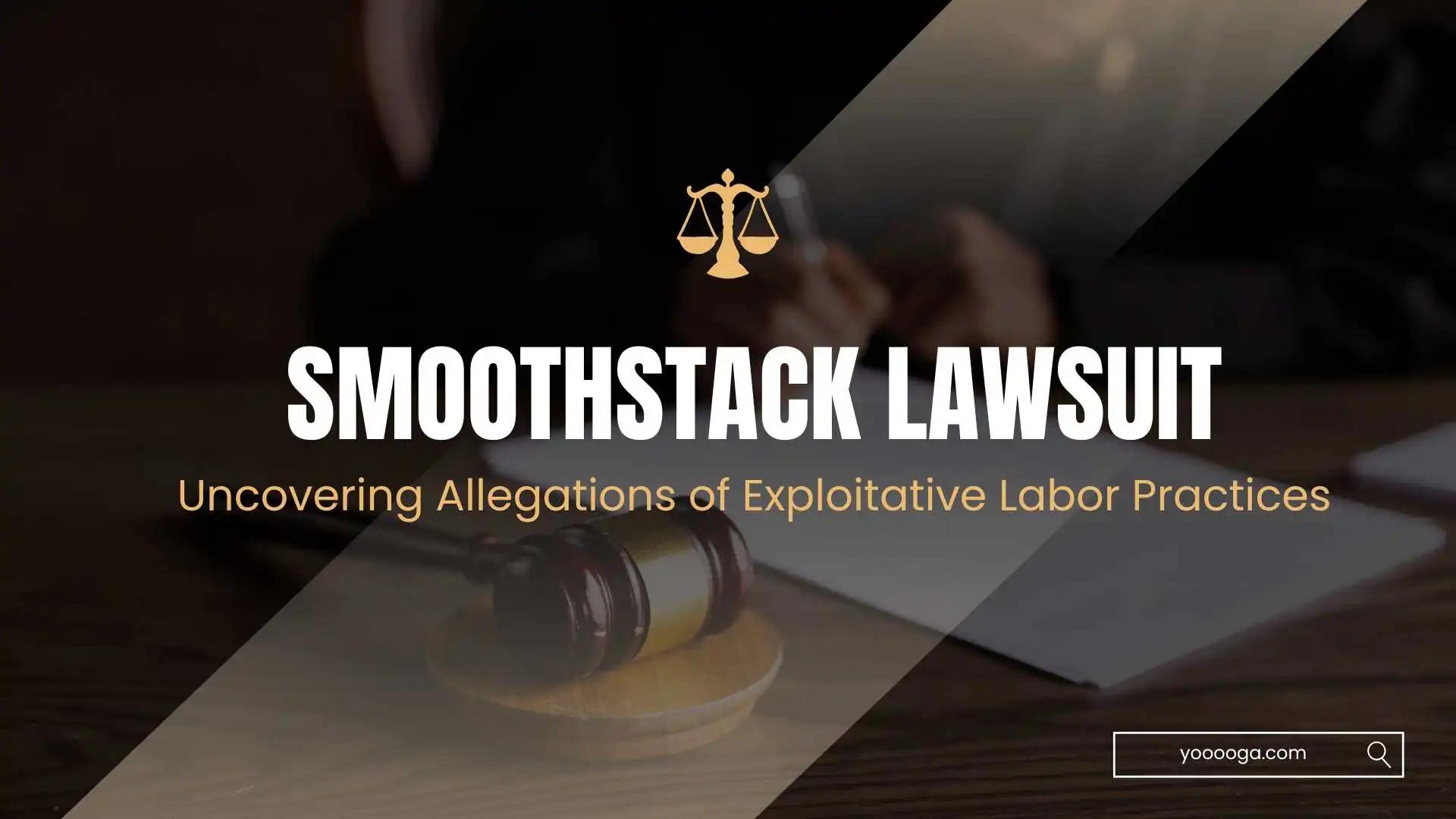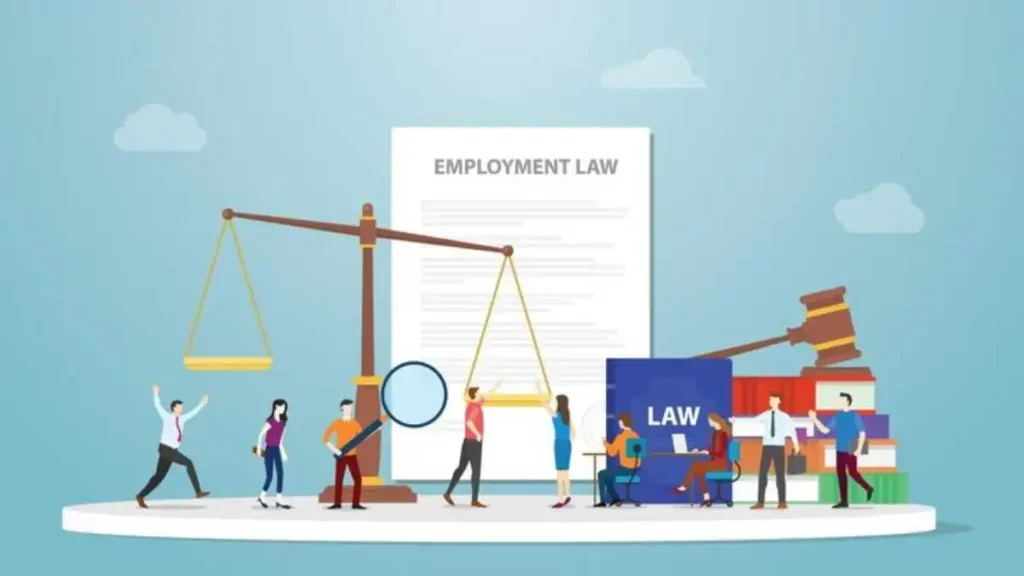Law
Smoothstack Lawsuit: Uncovering Allegations of Exploitative Labor Practices

The Smoothstack lawsuit has brought national attention to labor practices within the tech staffing industry. Filed in April 2023 as a class-action suit and later joined by the U.S. Department of Labor in July 2024, the lawsuit accuses Smoothstack—a technology staffing company—of engaging in exploitative labor practices, including the use of restrictive contracts known as Training Repayment Agreement Provisions (TRAPs). These agreements allegedly forced employees to repay up to $23,875 if they left before completing 4,000 billable hours, effectively locking them into extended periods of underpaid labor.
Table of Contents
What is Smoothstack? Understanding the Company Behind the Lawsuit
Smoothstack is a tech staffing and training firm that recruits individuals, often recent graduates or immigrants, for software development and IT consulting roles. The company promises career advancement through intensive training followed by placements with major enterprise clients. However, the Smoothstack lawsuit challenges the legality and ethics of this business model, alleging it relies on hidden costs and binding agreements to keep employees in exploitative roles.
The Core Allegations in the Smoothstack Lawsuit
At the heart of the Smoothstack lawsuit are claims that the company violated the Fair Labor Standards Act (FLSA) and engaged in unfair labor practices. Former employees allege that:
- They were not paid during a mandatory full-time training period.
- They received wages well below industry standards once placed with clients.
- They were pressured to sign TRAPs imposing a repayment obligation of nearly $24,000 if they left early.
- These contracts served as tools of coercion, effectively barring them from seeking better opportunities elsewhere.

Training Repayment Agreement Provisions (TRAPs)
Training Repayment Agreement Provisions are contracts requiring employees to reimburse the cost of training if they exit before a specified time. While not inherently illegal, their misuse can become exploitative.
In the Smoothstack lawsuit, plaintiffs argue that TRAPs were misrepresented as fair and standard but were used to trap workers in long-term, undercompensated employment. The repayment amount—$23,875—was allegedly disproportionate to the actual value of the training, raising concerns of unconscionable contract terms.
Allegations of Unpaid and Underpaid Work
One of the central issues in the Smoothstack lawsuit revolves around the company’s alleged failure to properly compensate its employees, both during and after their training period. Former employees have brought forward multiple claims, including the following:
Unpaid Training Period:
- Trainees were required to undergo a full-time training program that lasted several weeks.
- Despite working 40 or more hours per week during training, participants allegedly received no wages or stipends.
- Plaintiffs claim this violates the Fair Labor Standards Act (FLSA), which mandates compensation for all hours worked by non-exempt employees.
Underpayment post-training:
- Once placed on client projects, employees reported receiving wages significantly below the industry standard for software and IT professionals.
- Some individuals were paid close to minimum wage despite contributing to high-value client work.
Lack of Overtime Compensation:
- The lawsuit claims that employees were not adequately compensated for overtime hours, even when regularly working beyond the standard 40-hour workweek.
Delayed or Withheld Wages:
- In some cases, workers allege that wages were delayed or withheld altogether, especially if they raised concerns or attempted to leave the company before fulfilling their 4,000-hour obligation.
Limited Access to Benefits:
- Despite functioning as full-time employees, some workers claim they had restricted access to benefits such as health insurance or paid time off, further compounding their financial vulnerability.
Legal Action Initiated in April 2023
Former employees claimed that the company cheated them and filed the Smoothstack lawsuit seeking justice. The claim in the lawsuit is that Smoothstack forced people to choose between expensive legal fees and leaving the business if they considered getting another job.
Pointing out problems with the law and the mental stress put on workers, the plaintiff portrays the company as systematically abusing its employees.
The Department of Labor Files Suit: Escalation in July 2024
In July 2024, the U.S. Department of Labor also took Smoothstack to court, making the case more important. In the complaint, the DOL argued that Smoothstack’s TRAP system would be seen as modern-day indentured servitude.
Officials at the Department stated that requiring employees to remain by threat of serious financial penalties goes against key labor rights. By doing this, the plaintiffs strengthened their case and got the support of the government.

The Human Impact: Workers Trapped by Debt and Fear
The Smoothstack lawsuit also highlights the severe personal consequences faced by affected employees. Many of the workers were early-career professionals or individuals from immigrant backgrounds with limited bargaining power. Trapped by the fear of incurring a $23,875 debt, many stayed in jobs with minimal career growth and below-average wages.
Some plaintiffs reported anxiety, depression, and burnout, caused by the psychological burden of working under contractual threats. The lawsuit argues that this environment created an undue imbalance of power between employer and employee.
Legal and Ethical Dimensions of TRAPs
The legal battle surrounding the Smoothstack lawsuit has sparked a broader debate about the ethical and legal use of Training Repayment Agreements in the private sector. Critics argue that TRAPs, when used in the way described in the lawsuit, go beyond cost recovery and become instruments of exploitation.
Legal experts suggest that TRAPs must meet strict criteria to be enforceable: transparency, proportionality, and fair bargaining. When those elements are absent, as alleged in this case, such provisions may be deemed unenforceable or even illegal.
Implications for the Tech Staffing Industry
What happens in the Smoothstack lawsuit may influence other companies in staffing and IT consulting. A win for the plaintiffs could increase the risk of legal action and more regulatory attention for businesses using similar contract methods.
Here, we also see a shift in the tech industry, with routine practices now getting checked for fairness and legality. Because laws can change, employers might need to review their training methods, how they pay, and agreement clauses to remain in line with regulations.
Comparison of Standard Employment Practices vs. Alleged Smoothstack Practices
| Category | Standard Employment Practice | Alleged Smoothstack Practice |
| Training Compensation | Trainees are typically paid or compensated during onboarding/training periods. | Trainees were allegedly required to work full-time without any pay. |
| Employment Contracts | Contracts may include reasonable notice periods or probationary terms. | TRAPs required up to $23,875 repayment if leaving before 4,000 billable hours. |
| Wage Standards | Pay is aligned with industry norms and minimum wage laws. | Workers were allegedly underpaid, sometimes near minimum wage post-training. |
| Overtime Pay | Employees are paid 1.5x for hours worked beyond 40 per week (FLSA compliance). | Allegedly no overtime pay was given despite regular extended work hours. |
What Comes Next in the Smoothstack Lawsuit?
In mid-2025, both Smoothstack lawsuits are still being heard in court. Its officials have said that its practices are legal and are intended to protect the company’s investment in training. But higher levels of scrutiny and involvement from the government might lead Smoothstack to revise its employment policies or settle the legal issue.
Affected workers want their debts removed, to be refunded, and for this example to help other people in the same situation. The case has already helped make tech employers, legal professionals, and policy advocates face what is happening.
Conclusion
The Smoothstack lawsuit goes further than just a lawsuit; it is an important part of the continuing talk about fair labor practices in technology. Claims of no pay, not being paid enough, and forced contract agreements worry people about the ethics of staffing firm training schemes. Because the Labor Department is now involved, this case may prompt lasting improvements in how tech companies manage their workforce development efforts.
Because the tech industry is drawing diverse talent and growing in size, it needs to evolve to guarantee workers’ rights, pay them fairly, and end any coercive practices. If Smoothstack wins the case, it may help decide what ethical employment means as new changes happen in the labor market.
-

 GENERAL8 months ago
GENERAL8 months agoChristofle – For Those Who Dream of Family Heirloom Silver
-

 SPORTS10 months ago
SPORTS10 months agoDiscover the World of Football with Streameast: Watch Your Favorite Leagues and Tournaments
-

 GENERAL2 months ago
GENERAL2 months agoUncovering the World of кинокрадко: The Dark Side of Film Piracy
-

 GENERAL5 months ago
GENERAL5 months agoATFBooru: Anime, Gaming, and Subculture Imageboard




























